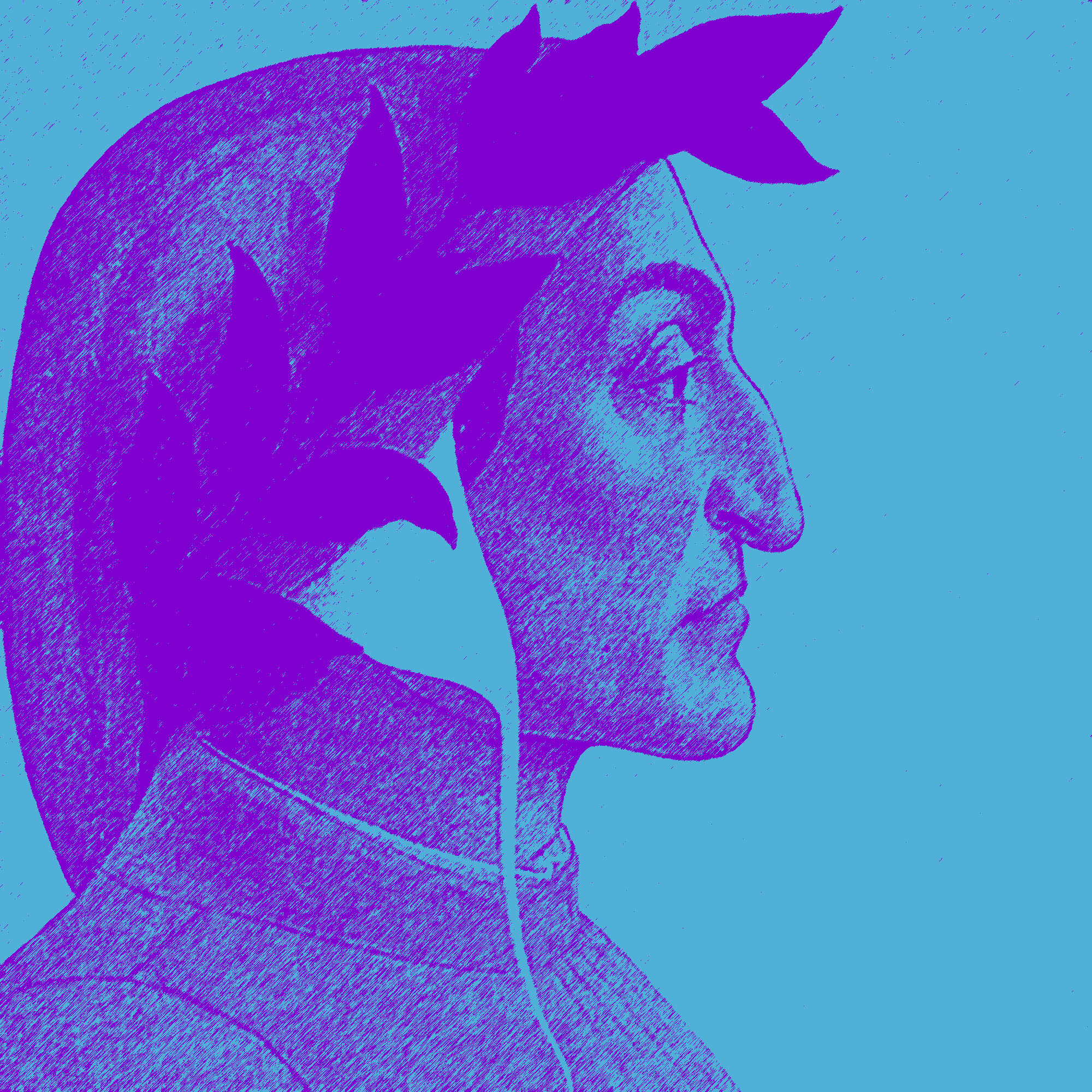
“In the middle of the journey of our life, I came to myself, in a dark wood, where the direct way was lost.”
— Dante Alighieri
Inferno
DANTE ALIGHIERI
1265 - 1321
Dante Alighieri (Durante degli Alighieri, c. 1265–1321) was an Italian poet, writer, and philosopher whose works helped shape both world literature and the Italian language. Born in Florence to a family of modest standing, he was educated in poetry, philosophy, and classical learning, and early on aligned himself with the dolce stil novo movement, which emphasized refined and spiritual expressions of love.
In 1289 he fought at the Battle of Campaldino, and by 1300 he had risen to the rank of prior, one of Florence’s highest political offices. The bitter divisions between the White and Black Guelph factions, however, led to his exile in 1302. Convicted in absentia by the victorious Black Guelphs, he was barred from returning to Florence on pain of death. He spent the rest of his life moving between courts in Verona, Bologna, and Ravenna, writing his most important works in exile.
His early masterpiece, La Vita Nuova (1294–1295), blends poetry and prose to recount his idealized love for Beatrice, a figure who would later guide him in his greatest work. In De vulgari eloquentia, Dante defended the use of the vernacular in literature, a radical departure from the Latin norm of his time. He further elaborated his vision in Convivio, an unfinished philosophical banquet, and De Monarchia, a Latin treatise asserting the independence of imperial authority from papal control.
His crowning achievement, The Divine Comedy, composed in Tuscan dialect and completed shortly before his death, revolutionized literature. Written in terza rima, a rhyme scheme he pioneered, the poem leads readers through Hell, Purgatory, and Paradise in an allegorical journey of the soul toward God. Guided first by Virgil, symbolizing reason, then by Beatrice, symbolizing divine revelation, and finally by Saint Bernard, representing mystical contemplation, Dante merges theology, philosophy, classical mythology, and personal political reflection into a cosmic vision unmatched in scope.
He died in Ravenna on September 14, 1321, likely of malaria, and was buried there despite Florence’s later pleas for his remains. Revered as il Sommo Poeta (“the Supreme Poet”) and celebrated alongside Petrarch and Boccaccio as one of the tre corone (“three crowns”) of Italian literature, Dante is regarded as the father of the Italian language. His work not only provided the foundation for modern Italian but also deeply influenced Western writers and artists from Chaucer to Milton and beyond.
Through his bold use of the vernacular, his fusion of classical and Christian traditions, and his profound vision of the human soul’s journey, Dante secured his place as one of history’s greatest poets.




